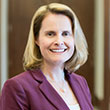Skills People with Econ Degrees Bring to the Table
What is economics, and what types of skills do people with economics degrees have?
A standard definition of economics says the study is about decisions related to the production, distribution and consumption of goods and services.
Looking at a few descriptions of economics from people who work in the field provides some insights into the kinds of skills economists and others with econ degrees may develop.
Three Ways to Describe Economics
In her keynote presentation at the 2021 Women in Economics Symposium, Abigail Wozniak described economics as “a practice of using theory, data, and observation to interpret human behavior… while allowing that one or more of these could be wrong.” Wozniak is the director of the Opportunity & Inclusive Growth Institute and a senior research economist at the Minneapolis Fed.
In a panel discussion at the same symposium, Alessandra Fogli, who is the assistant director of inequality research and a monetary advisor at the Minneapolis Fed, described economics as an intersection between a hard science and social science. She explained that the social science aspect involves interesting questions about people, countries and individual economies, whereas the hard science part comes in because economics uses quantitative tools.
“So, somehow, it’s the most quantitative of the social science[s] or the most social of the quantitative science[s],” she said.—Alessandra Fogli
Julie Bennett, a senior research associate at the St. Louis Fed, provided another description of economics during an August 2021 Women in Economics podcast episode.
“I think economics, certainly, is about the data and the numbers side of things. But I think it’s also about the stories and the people that are behind those numbers and how we tell those stories in order to answer those questions that are really important to people and the workings of our world,” she said.
Based on these descriptions, it makes sense that people with economics degrees often develop communication and big-picture skills, along with the quantitative ones. And the skills often are transferrable.
Gaining Transferrable Skills
For those who pursue an economics degree, even as an undergraduate, the analytical training can apply to “a huge range of topics,” according to Anne Winkler, a professor of economics at the University of Missouri-St. Louis.
—Anne Winkler
“There’s so much that you can do with economics. It provides a versatile, transferrable thinking and problem-solving set of skills, and it’s a skillset that’s valued by employers,” she said at the 2021 Women in Economics Symposium.
Winkler noted that a bachelor’s or master’s degree in economics also provides great training for law school, for public policy programs and for an economics Ph.D. program.
(For more information, see the August 2021 Open Vault blog post, “What Can You Do with an Economics Degree?”)
Developing Quantitative and Communication Skills
Even at the undergraduate level, students pursuing economics degrees have the opportunity to gain analytical, quantitative and statistical skills, as discussed in a January 2022 Page One Economics article by Aine Ackley, Mary Suiter and Scott A. Wolla. Such skills can be developed through courses in economics, computer programming and math, for instance.
Another important skill, particularly for economists, is the ability to communicate well, as Wozniak discussed during her keynote presentation. She cited an excerpt from a 2020 Journal of Economic Perspectives paper by epidemiologist Eleanor Murray. “At least from the perspective of this outsider, public communication appears to be a skill that economists have honed. … I suspect epidemiology has much to learn from economics about communicating with a skeptical and sometimes hostile public,” Murray wrote.
Wozniak noted that the economics profession, which can be “somewhat combative,” forces economists to be stronger communicators. Similarly, Fogli likened what economists do to what students do in debate. Fogli noted that economists have to present their papers and be able to debate, support and defend their ideas. Therefore, it seems intuitive that being successful in these areas requires strong communication skills.
Seeing the Broad Picture
Marie T. Mora, who is associate vice chancellor for strategic initiatives and professor of economics at the University of Missouri-St. Louis, discussed the lenses economists develop by studying both macroeconomics and microeconomics.
“That’s, I think, really key in terms of giving economists the broad picture,” she said at the 2021 Women in Economics Symposium. “We can see how different pieces are able to fit together in terms of our overall economy.”
—Marie T. Mora
Using the example of health care, she said that economists want to take a macro—or overall—perspective while also knowing the importance of understanding what might motivate people at the individual level.
Economists’ training and tools thus allow them to be “able to take that big-picture view and to be able to narrow it down to the micro level,” she said.
This blog explains everyday economics and the Fed, while also spotlighting St. Louis Fed people and programs. Views expressed are not necessarily those of the St. Louis Fed or Federal Reserve System.
Email Us


